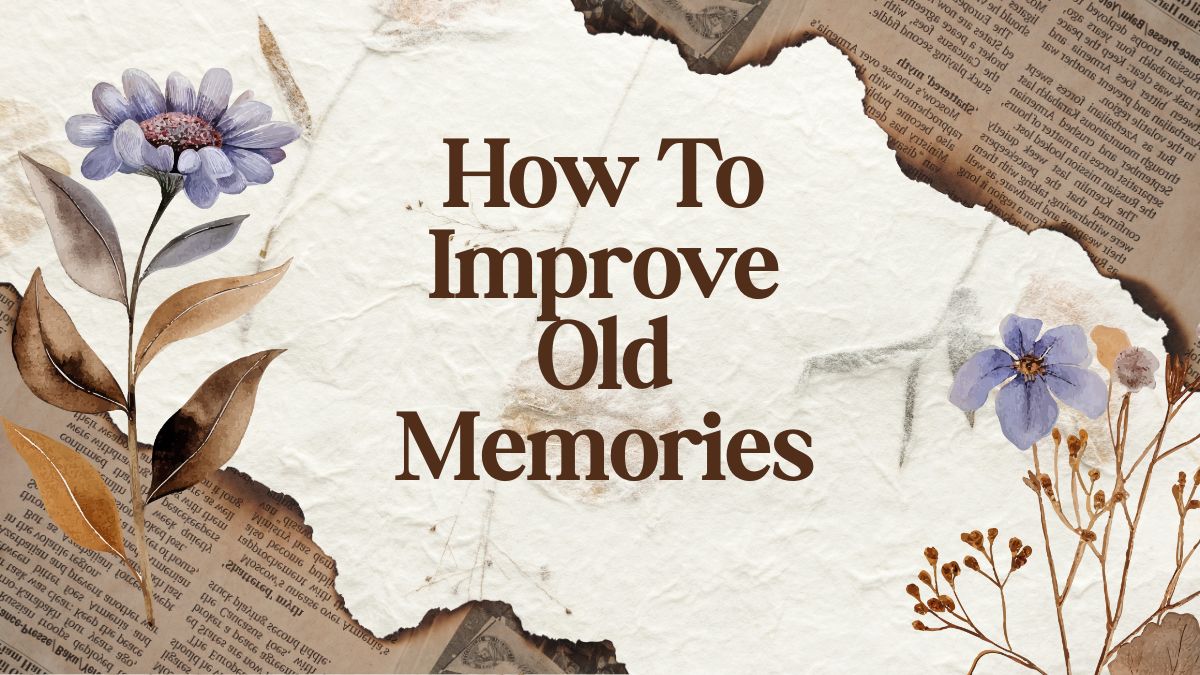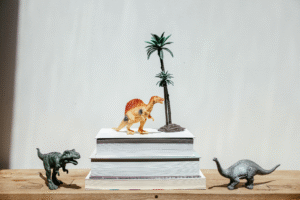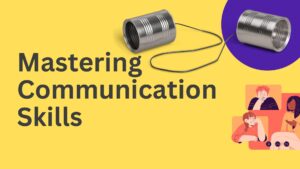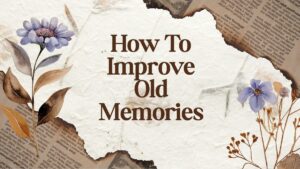How To Improve Old Memories
How to Improve Old Memories: A Comprehensive Guide to Strengthening Your Mind
Memories are the essence of our identity. They tell us who we are, where we’ve been, and what we value most. Yet, with age, stress, trauma, or even poor lifestyle choices, many of us experience fading or fragmented memories. Whether it’s recalling the name of a childhood friend, the scent of your grandmother’s kitchen, or a once-cherished moment, learning how to improve old memories can be transformative.
In this comprehensive guide, we will explore science-backed methods, mental strategies, lifestyle choices, and brain-training techniques that can enhance old memories, rejuvenate recall ability, and preserve the richness of your past. We’ll also touch on how emotional connection, sensory triggers, and mindfulness can significantly boost long-term memory retention.
1. Understanding the Science of Memory
Before diving into memory improvement techniques, it helps to understand how memory works. Memories are formed through encoding, storage, and retrieval. When you experience something, your brain encodes that information. If the memory is meaningful or repeated, it’s stored in long-term memory. Later, when you try to recall it, your brain retrieves it.
Old memories are stored in multiple regions of the brain, particularly the hippocampus and prefrontal cortex. Over time, these neural connections may weaken due to aging, reduced mental activity, or neurological changes. However, thanks to the brain’s neuroplasticity, it is possible to strengthen old memories by reactivating and reinforcing those pathways.
2. Stimulate Memory Through Mental Exercises
One of the most effective ways to improve old memories is through regular mental stimulation. The brain, like any muscle, gets stronger with use. Mental exercises can help sharpen memory recall and cognitive flexibility.
Techniques to Try:
- Memory Palace: Create a mental map of a familiar location and associate each room with a memory. This visual-spatial technique helps anchor memories for better retrieval.
- Association Games: Link names or events with vivid imagery or emotions. For example, remembering a colleague named “Daisy” by imagining a field of daisies.
- Repetition and Recall: Routinely recall past experiences and repeat them aloud or write them down. This reinforces the memory in your brain.
- Flashcards and Brain Apps: Use memory-training apps or flashcards to test and strengthen memory recall.
Engaging in these practices just 10–15 minutes a day can help you revive faded memories and improve attention span.
3. The Power of Journaling and Storytelling
Revisiting memories through storytelling is a deeply personal and highly effective method for memory improvement. When you talk about or write down an event from your past, you re-activate the neural circuits associated with that memory.
Benefits of Journaling:
- Helps reconstruct the details of events
- Organizes scattered or fuzzy memories
- Stimulates emotional connection, which improves retention
Try keeping a daily or weekly journal where you write about old experiences, such as your first school trip or a family celebration. Discussing these stories with friends or family also strengthens old memories by bringing them into conscious awareness.
4. Sensory Triggers: Unlocking Memories with the Five Senses
Our five senses are powerful tools for memory recall. Sensory input, especially smell and sound, is directly connected to the brain’s memory centers. That’s why a familiar perfume or an old song can instantly take you back decades.
How to Use Sensory Triggers:
- Smell: Revisit old perfumes, spices, or locations with distinct scents.
- Sound: Listen to music from a specific time in your life or background noise that matches a memory.
- Taste: Try recipes from your childhood or cultural background.
- Touch: Handle objects or textiles from your past, such as clothing or keepsakes.
- Sight: Look at old photographs, videos, or artwork.
The emotional impact of these sensory experiences often revives old memories with greater clarity and depth.
5. Emotional Connection and Memory Recall
Emotionally charged experiences are remembered more vividly than neutral ones. When trying to improve your memory, focus on emotionally meaningful moments. This not only enhances recall but also strengthens the emotional bonds tied to that memory.
Try These Practices:
- Reflect on how you felt during a specific memory
- Use visualization to re-experience the emotions involved
- Combine emotion with journaling or meditation
Research shows that combining emotion with conscious effort to recall an event improves memory encoding and retrieval. In other words, you remember what matters most deeply to you.
6. Lifestyle Changes to Boost Brain Health
Improving memory isn’t just a mental process; your lifestyle plays a vital role. Your brain needs proper fuel, rest, and activity to function at its best. Here are scientifically proven ways to boost memory through lifestyle changes:
Nutrition for Memory:
- Eat omega-3-rich foods like salmon, walnuts, and flaxseeds
- Include antioxidant-rich fruits and vegetables (berries, spinach, broccoli)
- Avoid processed sugars and trans fats
- Stay hydrated to support brain function
Physical Activity:
- Exercise increases blood flow to the brain
- Activities like walking, swimming, and yoga improve memory and mood
- Aim for at least 30 minutes of physical activity 3–5 times a week
Sleep and Memory:
- Memory consolidation occurs during deep sleep
- Aim for 7–9 hours of quality sleep per night
- Maintain a consistent sleep schedule
These habits not only support overall health but directly contribute to boosting old memories naturally.
7. Meditation and Mindfulness
Mindfulness meditation helps reduce stress, improve focus, and enhance memory retention. When you meditate, your brain becomes more efficient at organizing and retrieving information. Over time, this can lead to better access to older memories.
How to Practice:
- Sit quietly and focus on your breath for 5–10 minutes
- Let thoughts arise and pass without judgment
- When an old memory surfaces, observe it with curiosity
Guided meditations specifically designed for memory recovery are also widely available. Daily mindfulness can improve mental clarity and reduce the fog that sometimes clouds old memories.
8. Social Interaction and Memory Stimulation
Human connection plays a crucial role in memory maintenance. Social interaction keeps the brain engaged and forces it to recall, interpret, and respond in real-time. Regular conversations also stimulate memory recall through shared stories and laughter.
Ways to Stay Socially Engaged:
- Reconnect with old friends or relatives
- Join memory cafes or storytelling groups
- Attend local workshops or hobby classes
Isolation can lead to memory decline, while active social lives can improve both short-term and long-term memory. Sharing your past with others creates emotional reinforcement and helps preserve those memories.
9. Technology and Digital Tools for Memory Enhancement
Today, digital tools make it easier than ever to organize and improve memories. From memory games to apps designed for cognitive enhancement, technology can play a vital role in your memory-boosting routine.
Useful Tools:
- Lumosity, Elevate, and Peak: Brain training apps focused on memory, attention, and problem-solving
- Evernote or Notion: Note-taking apps where you can journal your past
- Photo scanning apps: Digitize old photos and create digital albums with notes
Combining traditional techniques with digital aids offers a comprehensive and modern approach to enhancing old memories.
10. Professional Help and Cognitive Therapy
If memory loss is significant or worsening, it may be time to consult a professional. Cognitive Behavioral Therapy (CBT), occupational therapy, and neurological consultations can provide tailored strategies for recovering old memories.
Therapists often use:
- Reminiscence therapy: Discussing life events, often with prompts or objects
- Cognitive rehabilitation: Personalized memory exercises and lifestyle plans
Early intervention is key. If you’re concerned about memory lapses, professional support can offer peace of mind and a path to cognitive improvement.
Conclusion: Your Memory Can Be Improved
Improving old memories is entirely possible with the right tools and mindset. Memory isn’t just about storing facts—it’s about emotional connection, lifestyle, mental exercise, and meaningful interaction. Whether you’re looking to sharpen your mind, reconnect with your past, or preserve memories for future generations, these techniques can help.
From mindfulness meditation and journaling to sensory stimulation and social engagement, there are countless ways to improve old memories naturally. Make memory care a daily habit, and over time you’ll experience better recall, deeper emotional fulfillment, and a stronger sense of self.
Your memories matter—because they are the threads that weave the story of your life.







































































1 comment